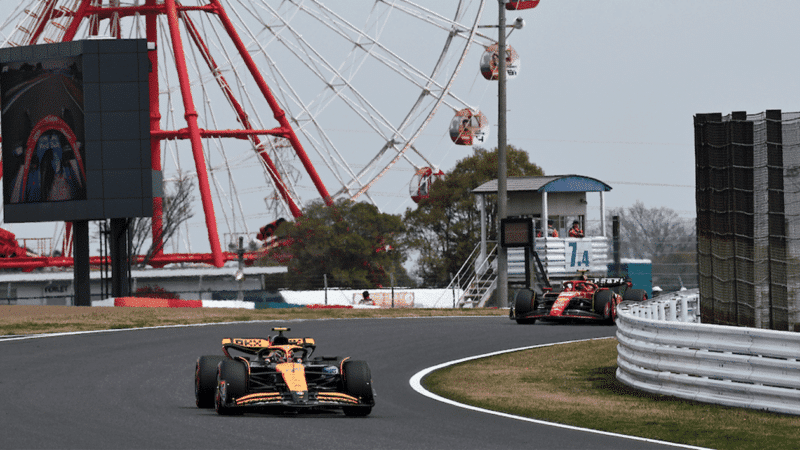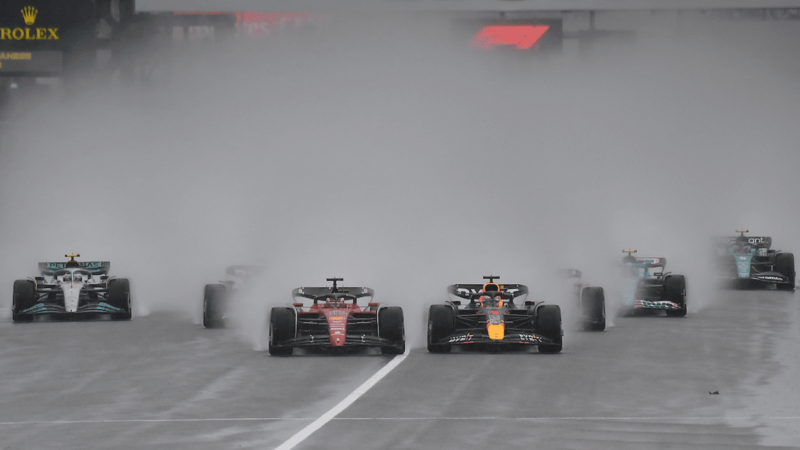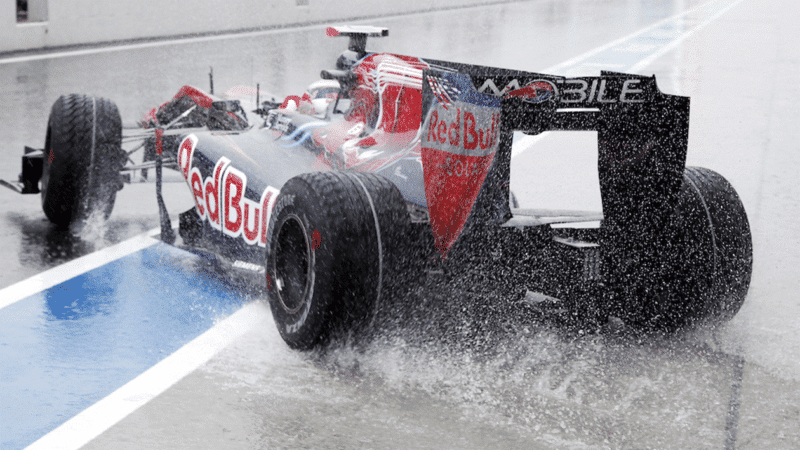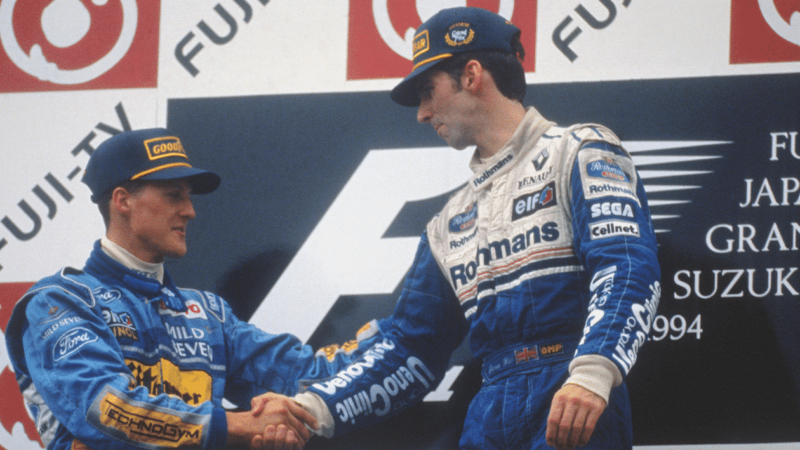What is the weather forecast for the Japanese Grand Prix?
With rain forecast over the 2025 Japanese Grand Prix weekend, we look at the what the weather will be like at Suzuka and revisit some of the circuit's wettest weekends

Suzuka has experienced plenty of rain in recent seasons
Suzuka has experienced plenty of rain in recent seasons
Rain and the Japanese Grand Prix are a common occurrence, with four of the last five race weekends at Suzuka experiencing some kind of precipitation during Formula 1 sessions.
Last year we witnessed a wet second Free Practice, 2022 delivered us a delayed start due to the conditions and qualifying was rescheduled entirely as a result of a typhoon back in 2019.
If the forecasts are correct, it seems that Sunday in Japan could be impacted by the wet weather, with Lando Norris suggesting that we could see another race of changeable conditions, as we did in the dramatic Australian Grand Prix at the start of the season.
What is the weather for Sunday in Suzuka?
Sunday 6 April brings cold conditions and a 50% chance of rain for the Japanese Grand Prix itself.
There’s a thunderstorm warning for the early hours of race day, with showers likely to continue until daybreak. Conditions are expected to get clear up as the morning goes on, but there’s more rain forecast at lunchtime.
While this should ensure that the grass is wet enough to avoid the grass fires that have affected practice and qualifying sessions this weekend, it could also leave the track wet for the start of the Grand Prix at 2pm local time (6am BST). That will be a certainty if rain continues in the afternoon: there’s currently a 50% chance of rain falling at the start of the race.
“No-one knows what the weather’s going to be like tomorrow,” said Norris after qualifying “It’s probably going to be a bit of a race like Melbourne, and that was an exciting race for everyone. I think the unknown of the weather is going to make it exciting and nerve-wracking for everyone.”
It’s suggested that the temperature for the start of the race will be around 17C (62F), with lows of Sunday reaching 11C (51F).

Max Verstappen and Charles Leclerc fight for the lead at a very wet Suzuka in 2022
Max Verstappen and Charles Leclerc fight for the lead at Suzuka in 2022
When was the last wet Japanese Grand Prix?
Although rain fell during second practice during last season, the last wet race at Suzuka was in 2022 when Max Verstappen secured his second drivers’ world championship.
The race was started under the very wet conditions and was soon red-flagged after an incident for Carlos Sainz, which saw the Ferrari driver aquaplane just after the circuit’s Turn 11 hairpin. Pierre Gasly was also caught up in the crash, collecting a piece of advertising board on the front of his AlphaTauri before being penalised for speeding under red flag conditions.
Racing resumed two hours later, but the clock was counting down with a three-hour limit placed on grands prix as per the FIA regulations. By the chequered flag just 28 laps had been completed which, when combined with the total time from lights-out to chequered flag, gave Verstappen an average speed of 53.58 km/h (33.29mph), along with the unusual record of slowest average speed for grand prix victory.
Verstappen was crowned champion in a bizarre parc ferme interview, after rival Charles Leclerc was handed an immediate five-second time penalty after cutting the final chicane.
Many drivers criticised the FIA – Formula 1’s governing body – due to a recovery vehicle being brought on track under the challenging track conditions. Gasly was one of several drivers who voiced their fury at the “unacceptable” decision, which shared a distressing resemblance to Jules Bianchi’s tragic accident at the circuit a decade ago this year.
Qualifying cancelled due to the weather
Suzuka was absent from the F1 calendar in 2020 and 2021 due to the Covid pandemic, but before that Typhoon Hagibis caused chaos across the 2019 Japanese Grand Prix weekend.
For the third time in Japan’s history, qualifying was cancelled from the scheduled Saturday slot and moved to Sunday morning before the Grand Prix. Intense weather impacted the championship’s qualifying schedule in 2004, 2010 and 2019, with the latter seeing the grid create a FIFA Playstation tournament as they sheltered from the storms.

Sébastien Buemi leaves the garage in wet conditions at the 2010 event
Sébastien Buemi leaves the garage in wet conditions at the 2010 event
Racing during typhoon season, which runs from May to October with the most activity happening from July through to September, was always likely to bring some bad weather to Suzuka. However, there is hope that it won’t have as much of an influence on the Japanese Grand Prix weekends after the event was rescheduled to earlier in the year.
Now hosted during the popular ‘sakura season’, or when the cherry blossom is at full bloom, there is hope that the weather will be better despite F1 mainly moving the race to improve calendar efficiency.
Hill’s Suzuka masterclass in the rain
We can’t mention racing in the rain at Suzuka and not give a nod to Damon Hill’s brilliant 1994 drive at this circuit, beating Michael Schumacher in conditions that he was born to win in.
Nicknamed the Regenmeister —rain master — Schumacher started from the front for the 1994 event – the first of eight pole positions he’d secure at this special circuit. The conditions failed to improve and got even worse as the race was started, with reports of hailstones bouncing off an already flooded pit straight.
The race was unsurprisingly red-flagged after 14 laps, but later restarted with the results decided by ‘aggregate’ times. Schumacher had a 6.8sec lead on championship-rival Hill from the first chunk of the grand prix, which meant Hill not only needed to pass him but also find himself further ahead than that.

Damon Hill delivered one of his greatest drives in the rain at Suzuka
Damon Hill delivered one of his greatest drives in the rain at Suzuka
“It was the most intense race I ever did, no question,” Hill told Motor Sport later. “I just kind of ratcheted myself up.
“I was driving on a different level from how I’d ever driven before. It was an experience which lived with me for a very long time. I think what we’re capable of mentally is way beyond what we think it is…”
Hill managed to finish ahead of Schumacher, not only by the six second deficit he needed but by an additional 3.3sec, to head into the season finale at Adelaide just a point apart.
